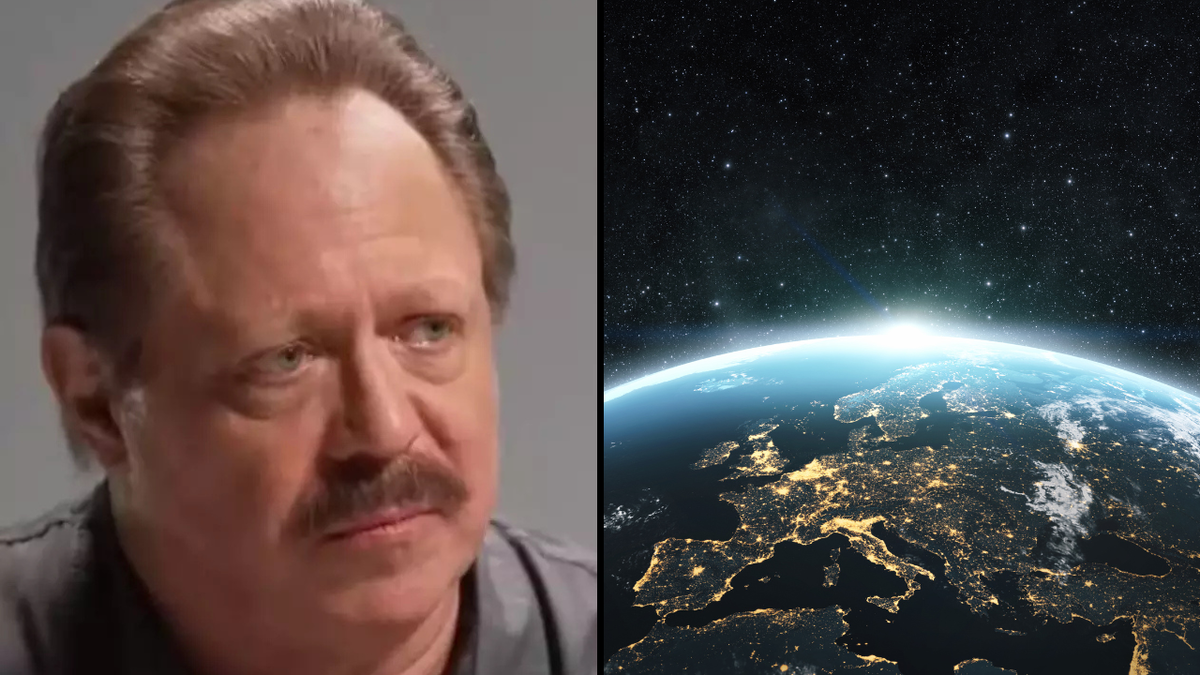
Credit: CTMU Radio via YouTube & Adobe Stock
Viral
One of humanity’s most profound questions is: “What happens after we die?”
Chris Langan, a 72-year-old American horse rancher reputed to have an IQ between 190 and 210 – 30 to 50 points higher than Albert Einstein – claims he may have the answer.
He’s developed a theory called the Cognitive-Theoretic Model of the Universe (CTMU), which he says bridges the gap between mind and reality.

Langan puts forward that death does not signify the end of existence but marks a transition.
He theorizes that consciousness, or the ‘soul,’ moves to another plane of reality, a dimension inaccessible during our physical lives.
Although Langan’s hypothesis doesn’t align with traditional notions, he suggests this transition ushers the soul into an entirely new state of being.
During his appearance on the Theories of Everything podcast with Curt Jaimungal, Langan described dying as: “The termination of your relationship with your particular physical body that you have at this present time.”
He added: “When you are retracted from this reality, you go back up toward the origin of reality.”
Langan claims this transition may involve receiving a ‘substitute body’ to continue existing in the new dimension.
He believes memories from a person’s life don’t vanish entirely but aren’t typically relevant in the new plane.

The ‘world’s smartest man’ remarked: “Your memories can always be pulled back out, but there’s no reason to do that usually… Why cling to memories of a world in which you are no longer instantiated?”
Langan likened the post-death state to a meditation form, where everything seems to change yet remains fundamentally interconnected.
He added: “Arguably, all of your lifetimes… all of those reincarnations are meta-simultaneous. There is a sense in which they all occur at once in the non-terminal domain.”
This state is distinct from the afterlife, as Langan views it as a deeper shift beyond the physical and mental self into an entirely new realm of existence.
CTMU, which Langan describes as a true ‘Theory of Everything,’ rests on three core assumptions.
First, reality is fundamentally composed of information expressed as language.
Second, it is ‘transtemporal,’ meaning events across different timelines can influence one another.
Finally, this self-simulated reality includes a ‘panconsciousness’ emerging from the creator or simulator.
Watch the ‘world’s smartest man’ reveal what he thinks happens after death below…
Related Article: Man Who Died And ‘Saw Heaven’ Says Angels Took Him To Unexpected Place
Related Article: Expert Gives Explanation As To Why Life After Death Is Impossible